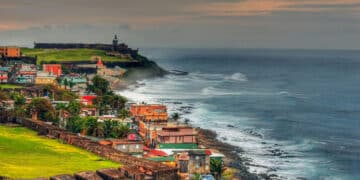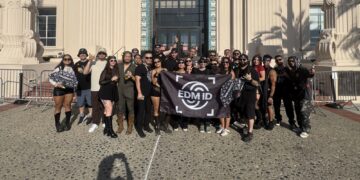With mainstays such as The BPM Festival being canceled and Labryinto moving to Brazil, time will tell what 2026 holds in store for Costa Rica.
Costa Rica has grown to offer a unique blend of ecotourism, tropical landscapes, and underground beats, from the capital in San Jose to smaller and more intimate gatherings. As the country has continued on this trajectory, it stood poised to become the next Ibiza—a boutique, eco-conscious electronic music haven.
For the local nightlife industry, 2025 could have marked a crescendo year as Costa Rica has emerged as a major destination for electronic music enthusiasts. It drew global talent to lush jungle settings with festivals like Ocaso and Labryinto, immaculate beaches for BLOND:ISH’s Deep House Bible, and event sites brought to life by a more sustainable, green ethos, like Envision Festival and its imitators.
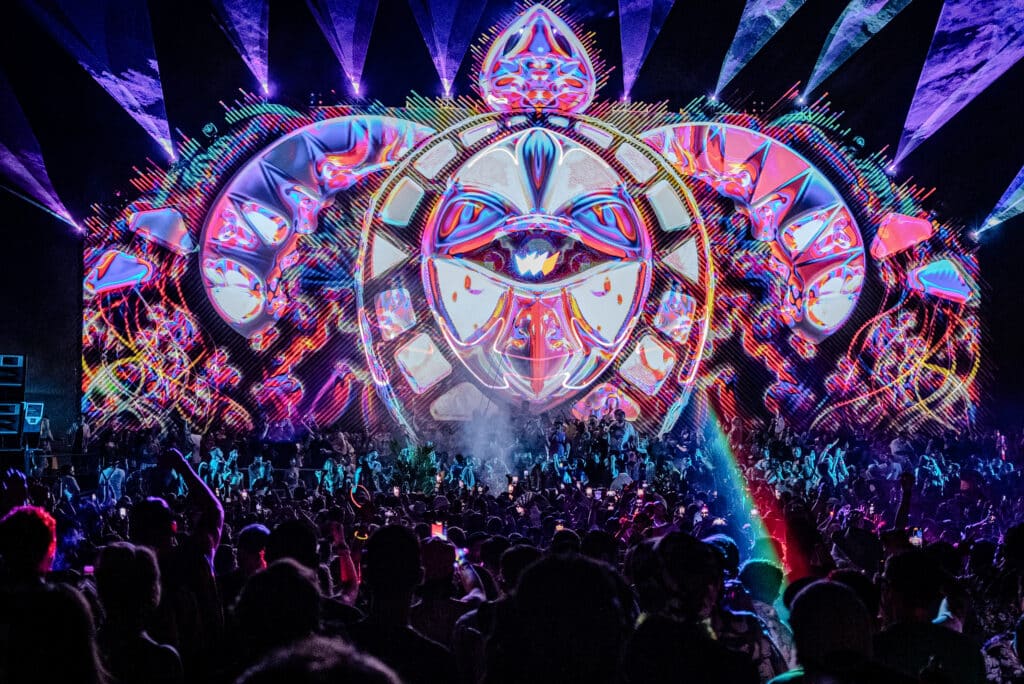
But 2025 has been a roller coaster year, from some of the highest of highs to the lowest of possible lows, depending on your musical preference. New Year’s Eve started off in the rockiest way imaginable with Labyrinto in its fourth year at Playa Lagarto, about 20 miles south of Tamarindo. The town — as well as the greater province of Guanacaste — have hosted festivals for several years now and growing. But that changed drastically when Labryinto was raided by police in the early morning of December 28, the first day of their three-day festival.
Labryinto was not some beach renegade. It was a professional production on par with a far larger festival featuring top artists, a Giegling showcase, and an intimate atmosphere for its nearly 3,000 deep-pocketed participants. Organizers released a statement and then pulled its schedule nearly eight hours forward to accommodate local permitting and shut down each night by 2:30am.
The party was allowed to go on, yet the heavy-handed tactics of local police forces proveded traumatic for many. Labryinto will be moving to Jericoacoara, Brazil, for its fifth edition early next year.
The next big gathering in the Tamarindo area, The BPM Festival, was not so lucky. Organizers ultimately canceled it the morning after their opening night in early January.
Chaos initially reigned as their festival site was unable to gain final local permitting. This was due, in part, to community complaints around safety. The BPM team issued a statement that Thursday morning announcing a takeover of several bars in Tamarindo in order to continue their programming until Friday morning — but at that time, the full cancellation was announced.
The festival mentioned that, on average, it brings $8-10 million to the local economy each year. According to its statement, “there are forces at play in Costa Rica that appear determined for us and for other electronic music festivals to discontinue or fail.”
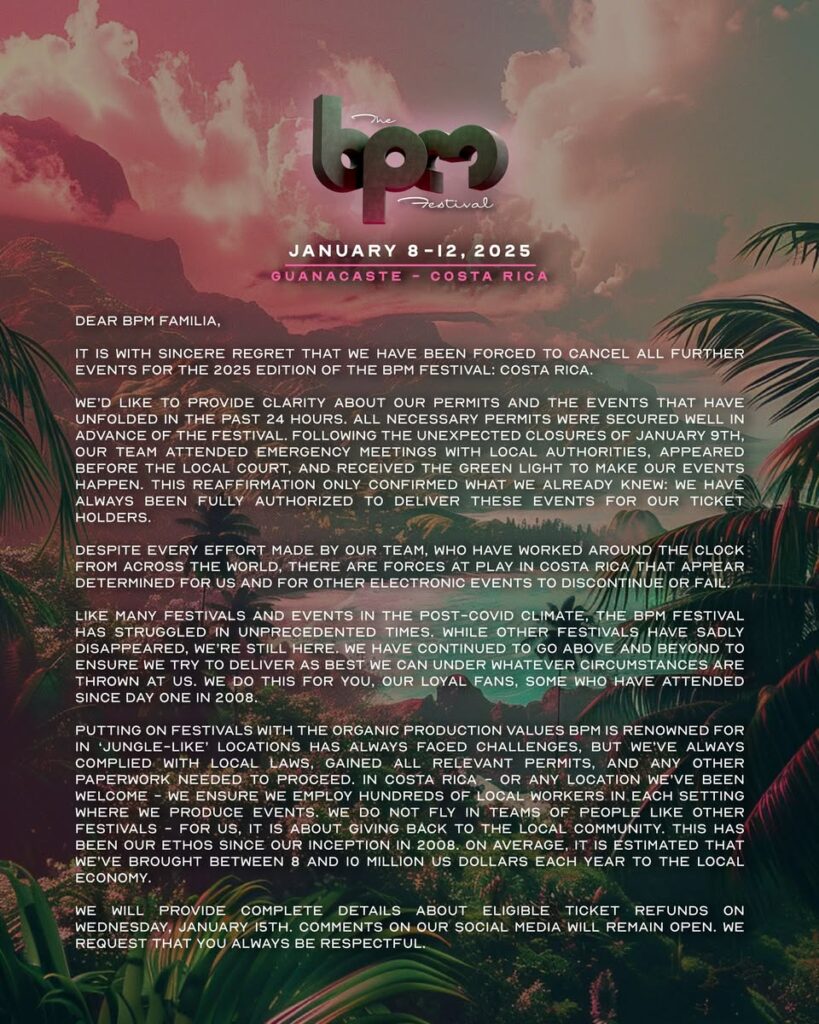
Police shutdowns on the grounds of community disruption and crime have become the norm in Tamarindo, leaving jungle stages turned off, venues raided, and programming canceled last minute. In the nightlife industry, that can signal the death knell of a festival.
Envision Festival, which typically takes place in Uvita in February or March each year, is the grandmother festival of the country, not to mention a staple of the woo-woo spiritualists, Tulum vibers, and dirty bass heads. Following its complicated 2024 edition, organizers decided to postpone until 2026. In a social media push, they stated their mission to return “Back to Our Roots” ahead of the relaunch event.
A smaller boutique festival, Awake Earth, planned to fill the gap left by Envision this year in Uvita, but it was unable to move forward due to permitting at the last minute in February. The town has grown around the Envision festival grounds over the past 15 years.
With tourism in the country taking a 7% dip from 2024 as of March, it is worth noting that international visitors generate 85% of Costa Rica’s tourism revenue, with a projected 15-20% reduction in arrivals to the country this year. Despite this, boutique festival gatherings have continued in the region, with Bliss Burn (a Burning Man-style event) completing its second edition with four days of music and workshops. One of the Envision founders has also kept the music going at their retreat center, Selva Armonia, and Kapok Music Festival is happening in Uvita this month.
Ocaso Festival became the big winner of the scene. Originally based in Tamarindo, it has a new home, El Antfiteatro Ocaso, that sits about one mile from Jacó Beach. The four-day festival of about 5,000 people at the end of January sold out. Word has it that the local mayor was even seen enthusiastically dancing behind the Martinez Brothers’ sunrise set.
While all these festivals showcase area talent, Ocaso has deliberately kept 50% of its bookings local and adjusted pricing to stay accessible for Costa Ricans. The festival is poised to benefit from and benefit its local ecosystem. Previous years have highlighted global artists such as John Summit, Michael Bibi, and Seth Troxler. Vintage Culture played this year with the Costa Rican flag draped around him, and it is said that Solomun‘s song, “Tuk Tuk,” is based on an early Ocaso experience where he had to take one of the song’s namesake three-wheel taxis to get to the site.
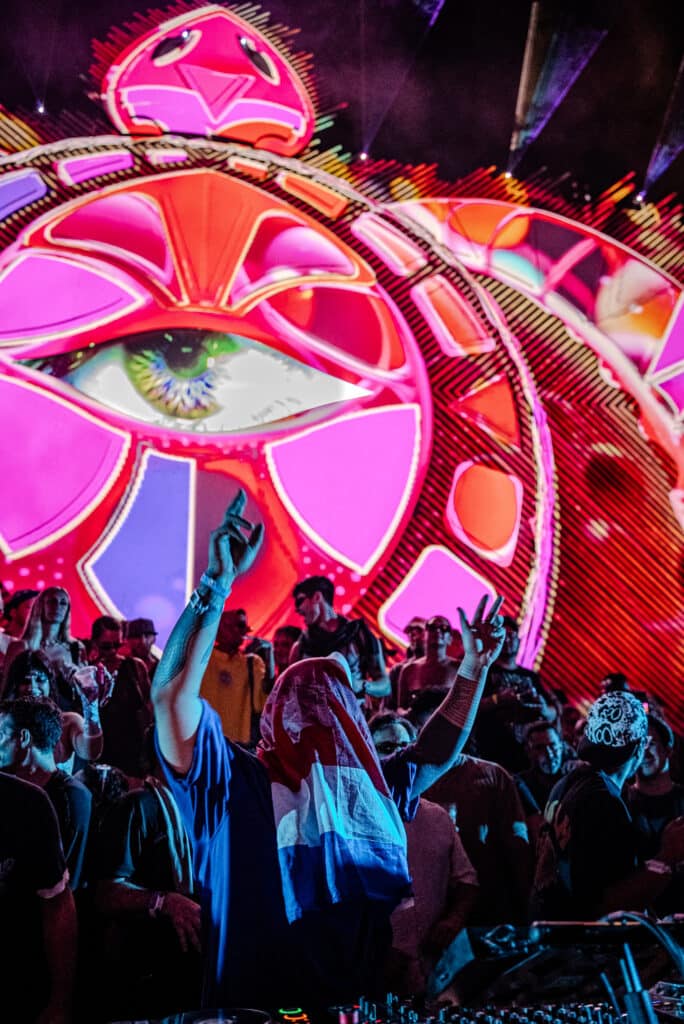
Costa Rica, like anywhere else in the global industry, has seen its fair share of festivals come and go. Bamboo Bass Festival didn’t return post pandemic, and Jungle Dreaming never got off the ground due to permit issues in 2023. Even the major dancehall artist Vybz Kartel was ultimately unable to move forward with a concert date at the National Stadium in San Jose because the promoter was unable to get the permits sorted in May, though both have announced they want a return date.
New Kids on the Block
This is not to say it’s all bad news. While upheavals on the coast are deeply affecting the festival climate of Costa Rica, in the capital city of San Jose, there is a rich and growing scene for electronic music enthusiasts. Groups like Electric Animals, 3AM Techno, and XTYLE Productions are bringing in global talent on par with the other major festivals, hinting at what can be achieved in the rapidly changing landscape.
San Jose’s electronic music scene has been flourishing for some time. This growth is anchored by local partnerships and an emerging global appeal of the city at the center of the country, coupled with a local taste for high-quality electronic music experiences.
International talent is not new to the city; clubs like Vertigo and Antik have always brought in eclectic and growing artists throughout the years, but now full-grown festivals are taking place in the city. Ocaso Festival and Mochakk had a special Semana Santa Full Moon Party at Campo Lago outdoor venue in San Jose in April 2023, signaling the city had an appetite for more than just the club.
This year, Electric Animals hosted ten hours of music at San Jose’s National Convention Center with talent such as Lee Foss, Sebastian Ledher, and Enamour. This was in addition to hosting Carl Cox and John Digweed back in January at the same location, while Hannes Bieger played with the San Jose Symphony in December.
These are not small-time productions. Their continued growth is necessary as the country’s entire nightlife landscape is quickly changing. The biggest gathering of the year is arguably the Oneiro Festival coming up at the end of November. Named after the first Costa Rican DJ and producer to approach international recognition before tragically passing away in 2021, Oneiro is set for its fifth edition, billing Armen Miran, Deer Jade, Dennis Cruz, and a slew of local artists.
Founded in 2022, 3AM Techno hosted &Me at Campo Lago in March and Boris Brejcha at the Parque de Diversiones Theme Park in February. Most recently, they helped bring Fatboy Slim to Guatemala, opening the door for more opportunities within the country and broader region.
3AM Techno also has dates set in El Salvador in December for an event named Forest. These curated formats favor intimate experiences over the excesses of big commercial festivals that tend to draw in more of an international crowd. With cryptic posts about upcoming events for August and into the fall, 3AM Techno will hopefully continue to grow and foster a new dynamic on the scene in San Jose and beyond.
XTYLE Productions has also taken full advantage of Campo Lago and other venues to bring in renowned talent, as well around the world to Costa Rica, including Green Velvet, Rafa Barrios, Nicole Moudaber, Nic Fanciulli, and Hugel. Founded in 2014, XTYLE Productions has been a trailblazer in the local scene with their upcoming events bringing in Franky Rizardo, Cloonee, and others.
San José’s electronic scene has matured from sporadic underground parties into a dynamic cultural catalyst, nurturing local DJs, drawing eclectic crowds, and reshaping urban nightlife. Intimate festivals and gatherings are driving San José’s emergence as a Central American hub for electronic music and rave culture.
Hope for a Symbiotic Future
The whiplash undergone by the ecosystem in the past year has already drastically changed the landscape for 2026. Between controversy stirred by concerned locals and environmentalists and last-minute cancellations that capture headlines and discourage future partnerships, only time will tell what the future will bring.
This growing tension that comes with expansion — even when accompanied by the hope of economic promise — must be weighed against unchecked growth. As the market across the industry is growing, Costa Rica has the opportunity to be an example of how to help mitigate these risks. While the environmental impact of unchecked tourism has impacted various communities and ecosystems, Costa Rica has the chance to change this narrative.
Areas of improvement include excess trash and crime that isn’t justified by economic benefit. These risks fuel perceptions that these festivals have nothing to offer the average Costa Rican. Unregulated beach parties are as much of a local escape during national holidays such as Semana Santa (Holy Week), when citizens of San Jose come to the various beach communities and leave their trash on the beach.
Every festival can do better, potentially working with organizations like Clean Wave, which has partnered with festivals such as Ocaso to organize beach cleanups after their festival dates. This is only one example of efforts that could help all parties reach a compromise that serves all of their needs.
While I attended Ocaso festival this year, on Saturday night, there was a heavier police presence at the festival site. Their attitude in Jacó was completely different from those at Labryinto in Guanacaste. These officers were chatting with vendors, and while noticeable, they were not aggressive or problematic.
As Kasablanca was starting their set, about 20 officers were milling about backstage. I jokingly asked the production head on why safety was such as concern. “They’re fans,” he said. “They asked to be back here.” It goes to show that a balance can be struck that reflects the need for safety and strong local relationships while still allowing all to participate. There was not a single problem that weekend.
As the industry dynamic is ever changing, more international competition in the region is growing, newer festivals such as Empire Music Festival in Guatemala or CROSSROADS in Panama are drawing a younger generation of electronic music fans, while the biggest competition may yet be on the horizon as Colombia has announced its own edition of Electric Daisy Carnival in Medellin for 2026. Though these arguably lack the more intimate vibes that have made Costa Rica special, all eyes seem to be on the region. This is what has made the ecosystem of the country so fluid and rhythmically diverse despite its small footprint.
While others are just getting started, these smaller festivals in the country are getting close to, or are entering their second decade. A better scene is possible. Where there’s a will, there’s a way, and the state of festivals in Costa Rica will remain strong.





